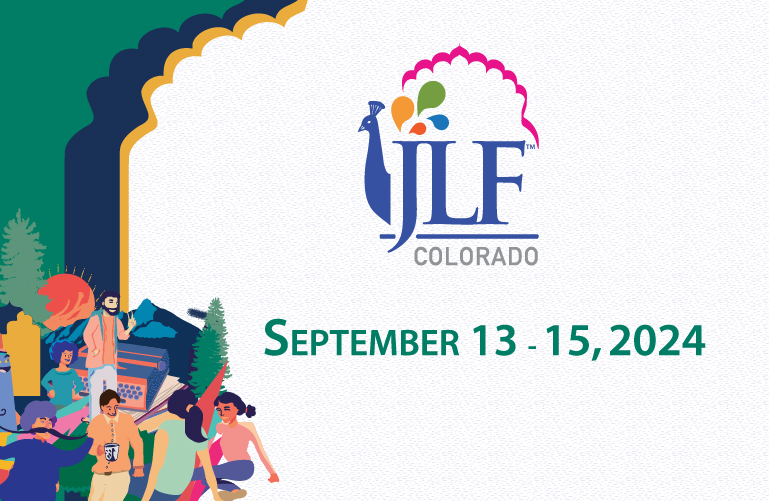

WHAT WE TALK ABOUT WHEN WE TALK ABOUT RAPE: Sohaila Abdulla in conversation with Tarfia Faizullah and Lacy Johnson
Three women coming into this space from different points of the spectrum – a gang rape at knife point by four strangers, betrayal by an abusive boyfriend who rapes and tries to kill her and an intense, year-long research project spent in connecting with and giving voice to Bangladeshi women, raped by Pakistani soldiers during their War of Liberation in 1971.
Sohaila Abdulla, Lacy Johnson and Tarfia Faizullah take the audience through a powerful forty-five minutes as they articulate the brutality of a violation that rips apart not just body but mind and soul as well. Including the journey back to healing. And strength.
Tarfia Faizullah shares a few verses from her poems that translates the Pakistani army’s atrocities against the hundreds of Bangladeshi women, into poetry.
“Each week I pull hard
the water from the well,
bathe in my sari, wring
it out, beat it against
the flattest rocks—
Are you
Muslim or Bengali, they
asked again and again.
Both, I said, both.”
Her empathetic telling evokes chilling images:
“Each day, each night, River, Rock, Fist…”
The interviewer’s notes at the end of each poem reveal how the poet struggles with her own search for identity, even as she steps forward to give “voice” and “dignity” to these thousands of women.
“What do you want to happen to the man who did this to you?”
Lacy Johnson, author of “The Reckonings” and “The Other Side”, shares her personal experience of healing and moving ahead from the trauma of being betrayed by the man she loved.
“Do you want him dead?” No, says Lacy, perpetuating the same cycle of violence again and again doesn’t seem like Justice to her. She is looking for a different equation, one in which the receiver is first a giver. ”If you extract joy from the world, you have to put it back in.”
Lacy reads the title essay from her recent book in which she speaks about the abusive relationship she went through at age 21 and the many roles she adopted since, living almost different lifetimes, before finding her calling as a writer. A perceptive observer, she says that in most of her talks, the woman or man seated near the door on the last row of the auditorium, “always has a story like mine”. About the abuse of power or authority.
Sohaila recounts the horror of her experience when at age 17, she is gang raped by four strangers who wound and threaten to kill her boyfriend if she does not submit to them. Her family rallies around her and complain to the Delhi Police but the environment is such that incidents of rape are always shrouded in silence. Sohaila cannot press charges and three weeks later she begins college in the US as an undergraduate. Three years later she attempts her thesis on “Rape in India” but still no one is willing to talk to her.
Brimming with fire, Sohaila shoots off a piece to a feminist magazine in Delhi that is published with her photograph, and this closes the chapter for her.
Or so it seems. 30 years later when the horrendous brutalization of Jyoti Singh happens, the streets of Delhi spring to life! Sohaila’s article is resurrected as the lone voice who has dared to speak out and demand justice. A dramatic change of social consciousness sees violent public protests, screaming for the rapists to be incarcerated and punished.
An Op-ed in the New York Times opens the gates for thousands of e-mails from men and women across the world, sharing experiences similar to Sohaila’s.
But how do you turn such an experience into a narrative that communicates the horrors of rape? That breaks through the paralysing shame, smashing down the walls of silence, a silence that protects the perpetrator and a system that shelters the violence.
“Words save us, words break us, words set us apart”, says Sohaila, triumphant that she has gone past the trauma and can still enjoy beauty, joy, rage along with a passion for life.
For her the discussion on rape has morphed into issues of consent and sexuality, chapters that feature in her book “What do we talk about when we talk about Rape”.
The scale of this “epidemic” is horrifying. Lacy shares an interesting nugget of information – the “Etiology of Hysteria” by Sigmund Freud states that behind every single diagnosis of hysteria, there is an early incident of sexual violence, and that hysteria is a symptom of post-traumatic stress disorder. However, Freud soon recanted this hypothesis as his own sister was diagnosed with hysteria and changed it into “the fantasy” of having been violated.
How many men rape? Who are these men? These are some of the last remaining barriers of silence that need to be pulled down. Tarfia speaks of her attempts to be dispassionate, to distance herself from the narrative even as she tries to bring alive the psychic landscape of the women struggling to pick up the fragments of their dignity. Poetry, to her, is that one form that allows the expression of such complexity.
A powerful session that left every member of the audience deeply moved and reflective.

Leave a comment